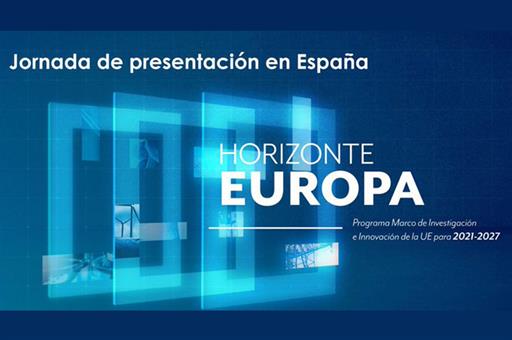Pedro Duque chairs presentation in Spain of new Framework Programme for Research and Innovation within Horizon Europe
News - 2020.12.2
The Minister for Science and Innovation, Pedro Duque, chaired the presentation in Spain of the new Framework Programme of Research and Innovation of the EU, Horizon Europe. The online augmented reality event, organised by the Innovation Agency of the Centre for Industrial Technological Development (Spanish acronym: CDTI), attached to the Ministry of Science and Innovation, presented the lines of work of the new Horizon Europe programme to more than 5,500 attendees. The new programme will be in force from 2021 to 2027, replacing the previous Horizon 2020.
Over the two days, more than 20 speakers and public experts in the management programme of the Ministry of Science and Innovation, the CDTI and the Spanish Foundation for Science and Technology (Spanish acronym: FECYT) outlined its already known features, and announced the forward-looking position of the EU R&I Framework Programme, a fundamental pillar within the Spanish Strategy for Science, Technology and Innovation.
"Despite the fact that we find ourselves between programmes at this time in which a large amount of the information available is still provisional, we wish to harness this opportunity for the Spanish bodies and public authorities involved to begin work as soon as possible in this new environment under new rules", explained Minister Duque in his speech. The aim is for the "results that Spain can achieve in the new programme to be even better than those under the programme that concludes in 2020". "To do so, we have to hit the ground running", he said.
New features of the Horizon Europe Programme
The new programme is based on three pillars, which is a significant development on the previous programme. The first, Excellent Science, continues the path of Horizon 2020, while the second, Global Challenges and European Industrial Competitiveness, brings together previous themes related to social challenges and industrial leadership, which is structured in clusters designed to facilitate a multidisciplinary focus, thus seeking to maximise synergies.
The third pillar, Innovative Europe, is the main new feature. Headed up by the European Innovation Council (EIC), this will centralise rounds of proposals in open subjects and will be focused on building a European innovation environment.
A further two important new features of this framework programme are new, closer relations with the European associations and the 'research missions'. The associations (partnerships among countries) will particularly play a leading role in the second pillar of the new programme: the forecast is for 50% to be implemented through these associations.
The 'Research Missions' are another of the leading commitments under this framework programme: With the aim of responding to those challenges posed by the public, the launch of these missions is a new way of implementing R&D+i, with a social and economic impact in areas of interest for the EU and its citizens. These missions will be defined as a portfolio of interdisciplinary actions based on R&D+i, aimed at responding to a bold and inspirational target, which is also quantifiable, and will have a great social impact.
The Ministry of Science and Innovation will continue to manage this programme through the CDTI and the FECYT.
Provisional results of Spain under Horizon 2020
The results from Spain's participation in Horizon 2020 are excellent, both in terms of returns and in participation. Since the start of this framework programme, Spanish bodies have obtained grants totalling over 5.2 billion euros, which accounts for 10.3% of the total allocated to EU countries.
These results have consolidated Spain in fourth position in terms of finance obtained (behind Germany, the United Kingdom and France), and third in terms of the number of participations in financial activities, with a total of 13,612.
To date, more than 11,500 Spanish bodies have participated in close to 54,000 proposals presented under the different rounds of proposals, of which 3,521 were successful and received funding to develop 7,224 initiatives. It should be noted that the leadership of projects by Spanish entities has led to Spain occupying first position by heading up 1,055 projects (16.8%). A total of 3,493 subsidised activities have had a Spanish coordinator
By type of body, companies that head up Spanish return stand out with 37.3% of the subsidies, followed by universities, with 19.8%; research organisations, with 11.7%; technology centres, with 11.6%; public research centres, with 10.6%, public authorities, with 5.5%; associations, with 3.3%, and EU bodies, with 0.2%.
Spanish entities are well positioned in many fields. Spain is the leading country in Bio-economics, 11.7% of the EU total, and Science with and for Society, with 12.1%. It also holds first position in the ranking for countries in terms of Innovation for SMEs, with 16%. It also holds first position in the country ranking in Innovation of SMEs, with 16%. Our country is also the leader in the areas of "Active Rejuvenation and Self-management of Health", "Smart Cities and Communities" and "Energy Efficiency" and "the Circular Economy, Water and Waste", among others.
Spain also stands out with second position in NMBP - Nanotechnologies, Advanced Materials, Biotechnology, and Advanced Manufacturing and Processing - the Social Challenge of Energy, the Environment and Raw Materials.
Non official translation





